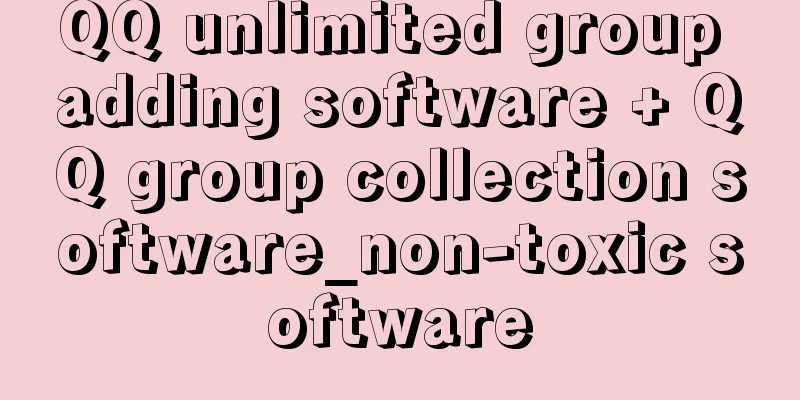Empowering TV terminals, LeTV Cast, with tens of millions of daily active users, creates a win-win business model

|
With the gradual explosion of mobile Internet content, the influence of smart TVs, a large-screen device, is also declining day by day. Data released by CSM shows that the average daily usage time of smart TVs in 2012 was 164 minutes, but by 2019, this number was only 117 minutes. With the explosion of 5G and AIoT markets, the importance of smart TVs in the living room as natural large screens is self-evident. However, the strong position of mobile phones in content also highlights the fact and helplessness that the attractiveness of smart TVs to users is weakening. So, how to resolve this contradiction? Recently, we jointly invited Tang Yi, COO of LeTV Cast, to hold a telephone conference with Western Securities to explore the evolution of smart TVs based on the current status of industry development and the rigid demand for casting. Users' rigid demand for screen projection promotes the development of smart TVs The reason why smart TVs are becoming less and less attractive to audiences is directly related to the fact that mobile terminals are becoming more and more attractive to users. According to the data from the "2020 China Mobile Internet Spring Report" released by QuestMobile, the number of monthly active Internet users was 1.156 billion in March 2020. At the same time, the average daily usage time per person reached 7.2 hours, a year-on-year increase of 28.6%. At the same time, data from Aowei Interactive Entertainment showed that the average monthly power-on rate of smart TVs in February 2020 was only 45.0%, and the daily power-on time was only 6.4 hours. Although the portability of smartphones determines their unique advantages in social networking, short videos, and photography, when compared from the perspective of terminal characteristics, the advantages of smart TVs such as large screens and immersive viewing experience are something that smartphones can never match. Combining these two features, LeTV Cast imports the content of smartphones to smart TVs through a "bridge" approach, thereby leveraging the terminal characteristics of smart TVs to attract viewers. It is worth noting that under this mature business model, LeTV Cast has not rested on its laurels, but has chosen to open source its casting SDK. It is understood that LeTV Cast TV SDK has covered 200 million smart TVs, and the mobile SDK has been integrated into more than 3,000 mobile video apps and mobile devices, covering a total of 1 billion mobile terminal users. In this regard, LeTV Cast COO Tang Yi said: "LeTV has built a very solid resource barrier. Because both ends are provided by LeTV, LeTV has developed its own private protocol called Lelink Protocol, which connects the entire ecosystem of large and small screens interconnected." This product concept of empowering large-screen products with small-screen content to enhance the vitality of large-screen products was fully demonstrated during the Spring Festival. LeTV screen casting data shows that on the day when the theater movie "Lost in Russia" was released on Xigua Video on the first day of the Lunar New Year, LeTV's DAU increased by more than 400%; although LeTV's DAU declined after the Spring Festival, it eventually stabilized at more than 10 million. This shows that users' demand for screen casting is real, and once this screen casting habit is formed, it is irreversible, thus becoming a loyal user of screen casting; At present, more than 10 million families use LeTV Cast to watch TV every day, with an average of more than 5 casting times per day, and the average casting time for each user is about 2 hours per day. Combining the changes in LeTV's DAU data and users' demand for screen casting, it can be found that LeTV screen casting has greatly improved the content richness of smart TVs, thereby effectively reversing the decline of smart TVs in the face of the aggressive smartphone offensive. A win-win business model empowers the large-screen industry In addition to bringing tangible value to users, another major criterion for judging the success of a business model is whether it can demonstrate specific value in both business and industry. Take the iPhone as an example. While meeting users' needs for mobile Internet, it has brought huge profits to Apple on the one hand, and on the other hand, it can lead the entire mobile phone industry forward in an orderly manner. Therefore, it can be regarded as a benchmark business model. Many people thought that after LeTV Cast opened its SDK and adopted a free model, it fell into an idle trap similar to QQ in 2000, which had "only traffic but no commercial value". This is obviously incorrect. From an industry perspective, the declining influence of smart TVs is likely to bring about two negative impacts: one is a decline in TV manufacturers' revenue, and the other is a serious hindrance to the transformation of smart home scenarios. Just as Tang Yi said: "The number of times the TV is turned on and the duration of use can be increased, allowing these high-value users to return to the TV again." The emergence of LeTV Cast has brought about a major change in the TV industry, that is, users have returned to the living room, which can undoubtedly reverse the negative impact of these two aspects and drive the industry forward. Secondly, from a commercial perspective, LeTV Cast wants to do more than just monetize through conventional advertising. It also hopes to build a platform and work with industry partners for mutual benefit. Similar to the startup ads, when users use LeTV to cast screen, a 15- to 30-second screen casting service startup ad will be launched. It has become an important media platform on the OTT side and has reached cooperation with many international first-line brands such as Adidas, Dyson, Coca-Cola, and Ocean Mystery. In addition, based on LeTV Cast's cooperation with more than 3,000 audio and video apps on mobile terminals, LeTV Cast can open up free-screen advertising authorization to third-party apps. This will not only enable LeTV Cast to broaden its traffic channels, but also help third-party apps to create refined services, which will undoubtedly achieve a win-win situation for all three parties. With the advent of 5G networks, the concept of local area networks may be broken; LeTV Cast combines the original cross-network screen casting gameplay with the user's demand for screen casting anytime and anywhere to create a product system of APP, PC, and TV. After purchasing a LeTV membership, you can enjoy the cross-network screen casting service of mobile phones, computers, and TVs anytime and anywhere. Combining LeTV Cast's ecological layout and its commercial operations, LeTV Cast has undoubtedly created a business model with extremely healthy underlying driving force and monetization capabilities. This business model is driven by user needs and the characteristics of large screens. On the one hand, it continuously attracts users, and on the other hand, it shares profits with partners based on the value brought to traffic, thus forming a positive cycle. More importantly, LeTV Cast's business model is also of great significance to the entire large-screen TV industry and its partners, because it broadens the revenue scope of the entire industry and creates a large-screen competition point that can compete with smartphones. As Tang Yi said: "Now the Science and Technology Innovation Board or Hong Kong stocks have lower profit requirements year by year. For companies with better rankings, they are more willing to spend more energy and resources on occupying a position." Presumably, LeTV Cast, which digs deeper into the commercial value of large screens, will be greatly favored by the capital market in the future. As a winner of Toutiao's Qingyun Plan and Baijiahao's Bai+ Plan, the 2019 Baidu Digital Author of the Year, the Baijiahao's Most Popular Author in the Technology Field, the 2019 Sogou Technology and Culture Author, and the 2021 Baijiahao Quarterly Influential Creator, he has won many awards, including the 2013 Sohu Best Industry Media Person, the 2015 China New Media Entrepreneurship Competition Beijing Third Place, the 2015 Guangmang Experience Award, the 2015 China New Media Entrepreneurship Competition Finals Third Place, and the 2018 Baidu Dynamic Annual Powerful Celebrity. |
<<: International Energy Agency: Natural Gas Analysis and Outlook 2022-2025
Recommend
"WEAK, STRONG, UNOWNED, for goodness sake!" - References in SWIFT
I find myself constantly worrying about retain cy...
The first self-developed machine in China! It has achieved a major breakthrough from scratch →
On May 16, the first 150MW large-scale impulse tu...
If a giant planet hits the Earth in 100 years, where will humanity go?
The probability of this assumption is extremely s...
Customer acquisition and conversion methods: applicable to both e-commerce and knowledge payment
Recently many friends have asked me why other peo...
No experience in short video advertising? The experienced driver will help you overtake on the curve!
This article mainly introduces the preparations b...
How important is marketing in international trade?
Due to the basic attributes of OEM, there is litt...
APP promotion and operation: How did the first batch of users come?
When developing an APP, we must first understand ...
The latest news on Shenzhen’s lifting of lockdown in 2022: When exactly will the epidemic be lifted?
In recent days, Shenzhen has reported new local c...
Attention! These 6 foods are highly toxic. Don’t keep them, let alone eat them! Throw them away immediately!
In life, many foods are delicious when they are n...
User growth case analysis: 3 key points for old customers to bring in new ones!
I have recently been researching referrals, which...
What creative elements are there in the hot copywriting for the Winter Solstice?
At 0:28 on December 22, 2017 (Friday), we will us...
The island is isolated in the middle of the ocean. Where does the fresh water come from?
The earth is a blue planet because most of the ea...
Artificial Intelligence or Artificial Idiotism? How far are we from true “autonomous driving”?
Audit expert: Liu Xiangquan Associate Professor, ...
Are you hungry? Don’t worry, there is something to tell you about fasting before the physical examination!
Physical examination is an important part of main...
"Hand in hand" in outer space? A review of the "highlights" of China's international space cooperation
After decades of efforts, China's space indus...









